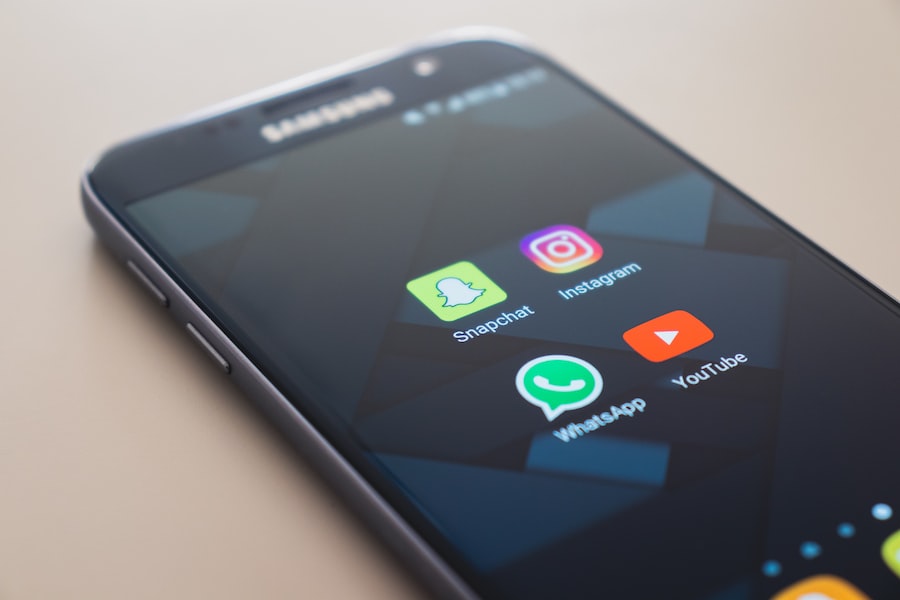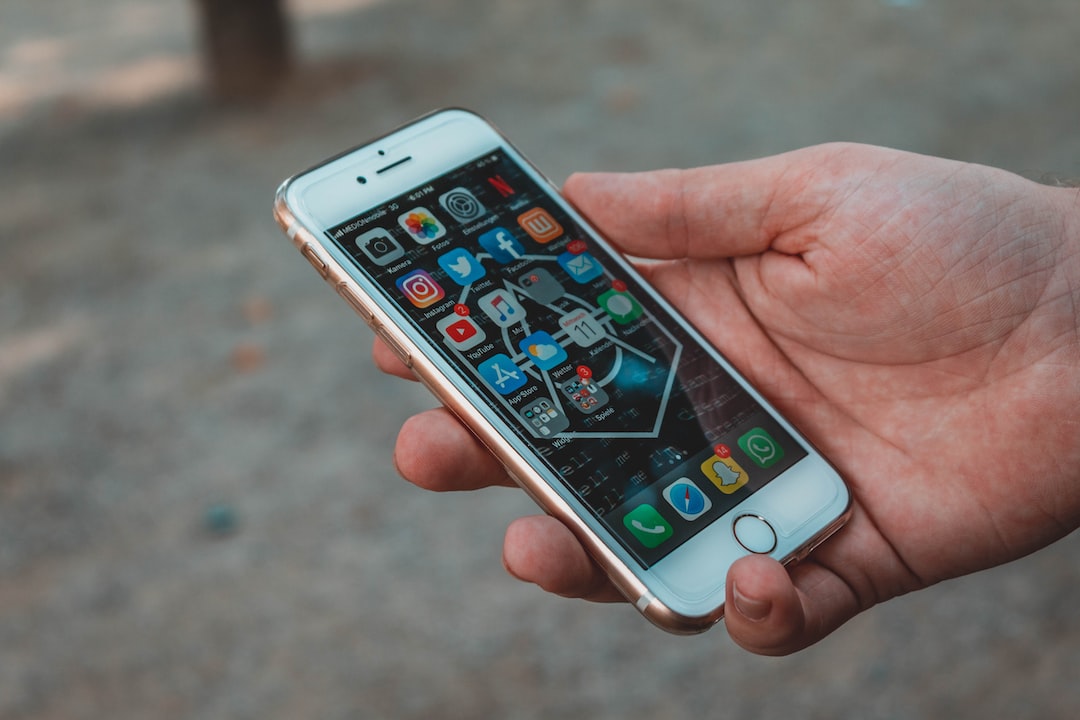WhatsApp is a popular messaging app that allows users to send text messages, make voice and video calls, and share media files. With over 2 billion monthly active users worldwide, WhatsApp has become an essential communication tool for individuals and businesses alike. In recent years, businesses have recognized the importance of WhatsApp marketing as a way to reach and engage with their target audience.
WhatsApp marketing offers several advantages for businesses. Firstly, it provides a direct and personal channel of communication with customers. Unlike traditional marketing channels such as email or social media, WhatsApp allows businesses to have one-on-one conversations with their customers in real-time. This level of personalization can help build trust and loyalty among customers.
Secondly, WhatsApp marketing has a high engagement rate. Studies have shown that people are more likely to open and respond to messages received on WhatsApp compared to other messaging platforms. This means that businesses have a higher chance of getting their message across and driving action from their target audience.
Key Takeaways
- WhatsApp marketing is important for businesses of all sizes.
- WhatsApp marketing can be non-intrusive and effective.
- WhatsApp marketing can be cost-effective and time-efficient.
- WhatsApp marketing can be effective for both B2C and B2B businesses.
- WhatsApp marketing can be measurable and trackable for better ROI.
Myth #1: WhatsApp Marketing is Only for Large Businesses
One common misconception about WhatsApp marketing is that it is only suitable for large businesses with a large customer base. However, this is far from the truth. WhatsApp can benefit small businesses just as much as it can benefit large businesses.
For small businesses, WhatsApp marketing provides an opportunity to establish a personal connection with their customers. By sending personalized messages and offers, small businesses can create a sense of exclusivity and make their customers feel valued. This can lead to increased customer loyalty and repeat business.
There are many examples of successful WhatsApp marketing campaigns by small businesses. For instance, a local bakery could use WhatsApp to send daily specials or exclusive discounts to their customers. A personal trainer could use WhatsApp to send workout tips and motivation to their clients. These small businesses are able to leverage the power of WhatsApp to stay connected with their customers and drive business growth.
Myth #2: WhatsApp Marketing is Intrusive and Annoying
Another myth surrounding WhatsApp marketing is that it is intrusive and annoying. While it is true that poorly executed WhatsApp marketing can be intrusive, there are ways to avoid being annoying and still create engaging content.
The key to successful WhatsApp marketing is to provide value to your customers. Instead of bombarding them with promotional messages, focus on creating content that is informative, entertaining, or helpful. For example, a fashion retailer could send styling tips or outfit ideas to their customers. A restaurant could send recipes or cooking tips. By providing valuable content, businesses can keep their customers engaged and interested in their brand.
It is also important to respect your customers’ privacy and give them control over the messages they receive. Provide clear opt-in and opt-out options, and allow customers to choose the type of content they want to receive. This way, you can ensure that your messages are targeted and relevant to your customers’ interests.
Myth #3: WhatsApp Marketing is Expensive and Time-Consuming
Contrary to popular belief, WhatsApp marketing does not have to be expensive or time-consuming. In fact, it can be a cost-effective and time-efficient way to reach your target audience.
WhatsApp offers a free messaging service, which means that businesses can send messages to their customers without incurring any additional costs. This makes it an affordable option for businesses of all sizes.
To make WhatsApp marketing more time-efficient, businesses can use automation tools and templates. These tools allow businesses to schedule messages in advance and send them automatically at a specified time. This saves time and ensures that messages are sent consistently.
Additionally, businesses can use analytics tools to track the performance of their WhatsApp marketing campaigns. These tools provide valuable insights into customer engagement, allowing businesses to optimize their strategies and improve their results.
Myth #4: WhatsApp Marketing is Only Effective for B2C Businesses
While WhatsApp marketing is often associated with business-to-consumer (B2C) businesses, it can also be effective for business-to-business (B2B) businesses. In fact, WhatsApp can be a powerful tool for building relationships and generating leads in the B2B space.
WhatsApp allows B2B businesses to have direct and personalized conversations with their clients and prospects. This can help build trust and establish a strong rapport, which is crucial in the B2B industry.
For example, a software company could use WhatsApp to provide technical support to their clients. A marketing agency could use WhatsApp to share industry insights and tips with their clients. By using WhatsApp as a communication tool, B2B businesses can enhance their customer service and strengthen their relationships with clients.
Myth #5: WhatsApp Marketing is Not Measurable or Trackable

One common misconception about WhatsApp marketing is that it is not measurable or trackable. However, there are ways to measure and track the effectiveness of your WhatsApp marketing campaigns.
One way to measure the success of your WhatsApp marketing campaigns is by tracking the number of messages sent, delivered, and read. This can give you an idea of how engaged your audience is and how well your messages are resonating with them.
You can also track the number of clicks on links shared in your WhatsApp messages. This can help you understand which types of content are driving the most engagement and which ones are not performing as well.
There are also third-party analytics tools available that can provide more detailed insights into your WhatsApp marketing campaigns. These tools can track metrics such as message open rates, click-through rates, and conversion rates. By analyzing these metrics, you can identify areas for improvement and optimize your WhatsApp marketing strategies.
Myth #6: WhatsApp Marketing is Illegal or Unethical
There is a misconception that WhatsApp marketing is illegal or unethical. However, this is not true as long as businesses adhere to WhatsApp’s terms of service and privacy policy.
WhatsApp’s terms of service state that businesses must obtain the necessary permissions from their customers before sending them marketing messages. This means that businesses cannot send unsolicited messages or spam their customers.
To ensure ethical WhatsApp marketing practices, businesses should always provide clear opt-in and opt-out options for their customers. They should also respect their customers’ privacy and only send messages that are relevant and valuable to them.
By following these guidelines, businesses can use WhatsApp as a legitimate and ethical marketing channel to engage with their customers.
Myth #7: WhatsApp Marketing is Only Effective for Promotions and Sales
While WhatsApp marketing is often used for promotions and sales, it can also be effective for customer service and support. In fact, WhatsApp can be a valuable tool for providing quick and personalized customer support.
By using WhatsApp as a customer service channel, businesses can provide real-time assistance to their customers. Customers can reach out to businesses with their queries or issues, and businesses can respond promptly to resolve them.
For example, an e-commerce store could use WhatsApp to provide order updates or answer product-related questions. A travel agency could use WhatsApp to assist customers with booking changes or travel emergencies. By using WhatsApp for customer service, businesses can enhance the overall customer experience and build stronger relationships with their customers.
Myth #8: WhatsApp Marketing is Not Secure or Private
There is a misconception that WhatsApp marketing is not secure or private. However, WhatsApp is known for its strong security features, including end-to-end encryption.
End-to-end encryption ensures that only the sender and recipient of a message can read its contents. This means that even WhatsApp itself cannot access the messages sent between users. This level of security ensures that your marketing messages are protected from unauthorized access.
To ensure privacy and security in your WhatsApp marketing campaigns, it is important to follow best practices such as not sharing sensitive information or personal data through WhatsApp. Businesses should also educate their employees on the importance of privacy and security when using WhatsApp for marketing purposes.
Debunking WhatsApp Marketing Myths for Successful Campaigns
In conclusion, WhatsApp marketing is a powerful tool that businesses can use to reach and engage with their target audience. By understanding the importance of WhatsApp marketing and debunking the myths surrounding it, businesses can create successful campaigns that drive results.
WhatsApp marketing is not only for large businesses but can also benefit small businesses by establishing personal connections with customers. It is not intrusive or annoying if done correctly, by providing valuable content and respecting customers’ privacy. It is not expensive or time-consuming, as it can be cost-effective and time-efficient with the use of automation tools and analytics.
WhatsApp marketing is not only effective for B2C businesses but can also benefit B2B businesses by building relationships and generating leads. It is measurable and trackable through various metrics and analytics tools. It is not illegal or unethical if businesses adhere to WhatsApp’s terms of service and privacy policy.
WhatsApp marketing is not only effective for promotions and sales but can also be used for customer service and support. It is secure and private due to its end-to-end encryption and security features. By understanding these facts and implementing best practices, businesses can leverage WhatsApp marketing to enhance their communication with customers and drive business growth.
If you’re interested in learning more about WhatsApp marketing and how to separate fact from fiction for successful campaigns, you should definitely check out this informative article from Martech. They delve into the common myths surrounding WhatsApp marketing and provide valuable insights on how to navigate through them. With their expert advice, you’ll be able to optimize your WhatsApp marketing strategy and achieve better results. Don’t miss out on this opportunity to debunk the myths and take your campaigns to the next level. Read the full article here.
FAQs
What is WhatsApp marketing?
WhatsApp marketing is the use of the WhatsApp platform to promote products or services, build brand awareness, and engage with customers.
What are some common myths about WhatsApp marketing?
Some common myths about WhatsApp marketing include that it is illegal, that it is only effective for small businesses, and that it is too time-consuming.
Is WhatsApp marketing legal?
Yes, WhatsApp marketing is legal as long as businesses follow the platform’s terms of service and applicable laws and regulations.
Can WhatsApp marketing be effective for large businesses?
Yes, WhatsApp marketing can be effective for businesses of all sizes, including large corporations.
What are some best practices for successful WhatsApp marketing campaigns?
Some best practices for successful WhatsApp marketing campaigns include obtaining consent from customers before sending messages, personalizing messages, and providing valuable content.
Can businesses use WhatsApp for customer service?
Yes, businesses can use WhatsApp for customer service, including answering questions, resolving issues, and providing support.
Is it necessary to use a third-party service for WhatsApp marketing?
No, it is not necessary to use a third-party service for WhatsApp marketing, but it can be helpful for managing campaigns and analyzing data.

